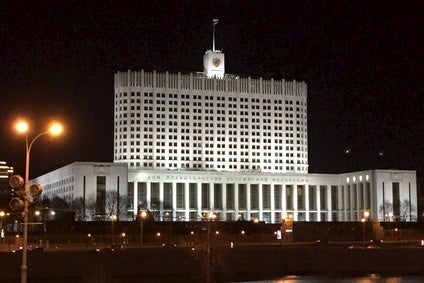Despite some small recovery in the oil price of late, adding a few pence, cents or centimes back onto a litre of fuel at the pumps, the crash in the price of the black stuff has been nothing short of spectacular during the last few months.
For the West, it’s been a remarkable fillip after years of plunging stock markets and austerity drives that have stripped out disposable income and brought economies almost to their knees, particularly in the south of the Continent.
But for consumers East of the Urals, the relentless downward pressure on oil costs have only added to their woes, at least on a macro-economic scale.
Moscow drivers currently pay around 60 cents a litre – and even that price is probably dropping – but what is good for Russian car owners is undoubtedly bad news for the Kremlin’s coffers as it finds its once almost impregnable status as global energy exporter superpower starting to come under serious threat.
At the same time, Moscow is engaged in a hugely confrontational and well-documented stand-off with the West which has pitched President Vladimir Putin and his associates seemingly four-square against London, Paris, Brussels and Washington, as they react vehemently to what they see as a de facto annexation of Crimea and chronic unrest in Eastern Ukraine.
Tomorrow (17 March) sees the opening day of this year’s Russian Automotive Forum and I’m writing this from the venue in Moscow where it will be fascinating to take the economic temperature from politicians, OEMs and suppliers, all anxiously scanning the horizon for the next challenge.
In front of me I have some Russian press, whose headlines betray the nervousness with which consumes are starting to grapple as high interest rates – although they have just been shaved 1% to 14% – soaring inflation and a depreciating Rouble – all contribute to expensive purchases such as cars being decidedly put off to another day.
Take this from today’s Moscow Times: “Oil crash is crushing Russia,” while: “Economy may shrink 5.8%” speaks of real pressure with the more prosaic – but indicative: “Beer prices highest in 17 years.”
It will be informative to hear if OEMs will address the downturn by either stopping shifts or laying off staff, while a session devoted to Russian politicians will reveal just what, if any measures, Moscow will take to address what is rapidly becoming a stark situation for automakers.
Ernst & Young CIS automotive group head, Andrey Tomyshev, estimates sales in Russia could plunge to levels last seen in the depths of the 2009 crisis, posting units of just 1.5m, with the former heyday of 2.9m not being seen until the end of the decade or beyond and making what some had viewed as a potential 4m market a very long way off indeed.
“As far as a total year forecast for 2015, sales could decrease to the bottom, which we observed in the 2009 crisis,” Tomyshev told me recently. “Sales dipped to 1.5m units – I think this target is quite realistic for this year.
“I think we will not return to annual sales in [their] historical maximum in 2012 – it will not return to these figures until the end of the decade – 2.8m/2.9m units by 2020 – even after.
“In 2015, it [Russia market] will be -35%/-40% – the major market players also expect the same decrease. We have the opinion of top management of Russian automotive dealers and they expect the same decline.”
The gloomy mood was thrown into stark relief only days ago with figures from the AEB showing car and LCV sales plunging 38% in February alone, with the Russian government’s attempts to boost the market through an extension of its scrappage scheme struggling to halt the decline.
The country extended its recycling initiative aiming to boost sales past its initial New Year’s Eve deadline, which prompted a modest spike in December, but numbers have since dropped back to the downward spiral witnessed in 2014.
“You have to understand, seeing such a decrease in real disposable income of the population, there will be a change in the market structure and demand structure,” said Tomyshev.
“The share of budget cars in retail will grow. AvtoVAZ and other Russian producers will probably win because they will have more opportunities not to increase prices, compared to factories which are less localised and more dependent on currency fluctuations.
“I think it will be an upturn, not in sales, but in market share for AvtoVAZ, GAZ and Sollers.”
With the cut in interest rates last week, it appears as if The Kremlin is now more concerned about boosting the economy than combating inflation, which, if that beer price increase is anything to go by, is a genuine factor in everyday life.
The auto industry is just one cog in the Russian economy, but it’s a substantial player that enjoys considerable clout at the highest political level.
Tomorrow’s conference will hopefully cast some light on what Moscow intends to do concerning its domestic industry, while foreign OEMs will no doubt outline the measures they are taking to combat the challenging situation.
Russia only recently hosted the Winter Olympics, while the international jamboree that is the football World Cup is due to descend in 2018.
This is a country that shows itself more than capable of operating at the very highest level, but is also one facing a heady cocktail of economic difficulties and tomorrow’s conference will be a fascinating snapshot of where Russia is right now.







